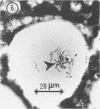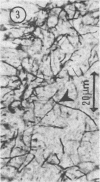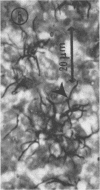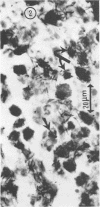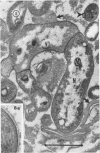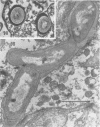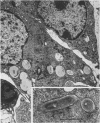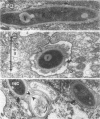Abstract
Several strains of Nocardia that varied from virulent to avirulent were injected intraperitoneally into young mice. Histological and ultrastructural analysis of the resultant infections revealed that the bacteria and the lesions they induced were different depending upon the strain of organism used. Further, the morphological and tinctorial characteristics of the bacteria grown in vitro changes during growth in vivo. These observations strongly suggested that chemical and physical alterations occurred in the cell envelope of the Nocardia when grown in mice. Electron microscopy confirmed that significant structural modification occurred, especially in the cell envelope, when the nocardial cells established themselves within the host tissue. It was shown that the least virulent strain exhibited the most dramatic changes whereas the most virulent organism appeared to be affected the least.
Full text
PDF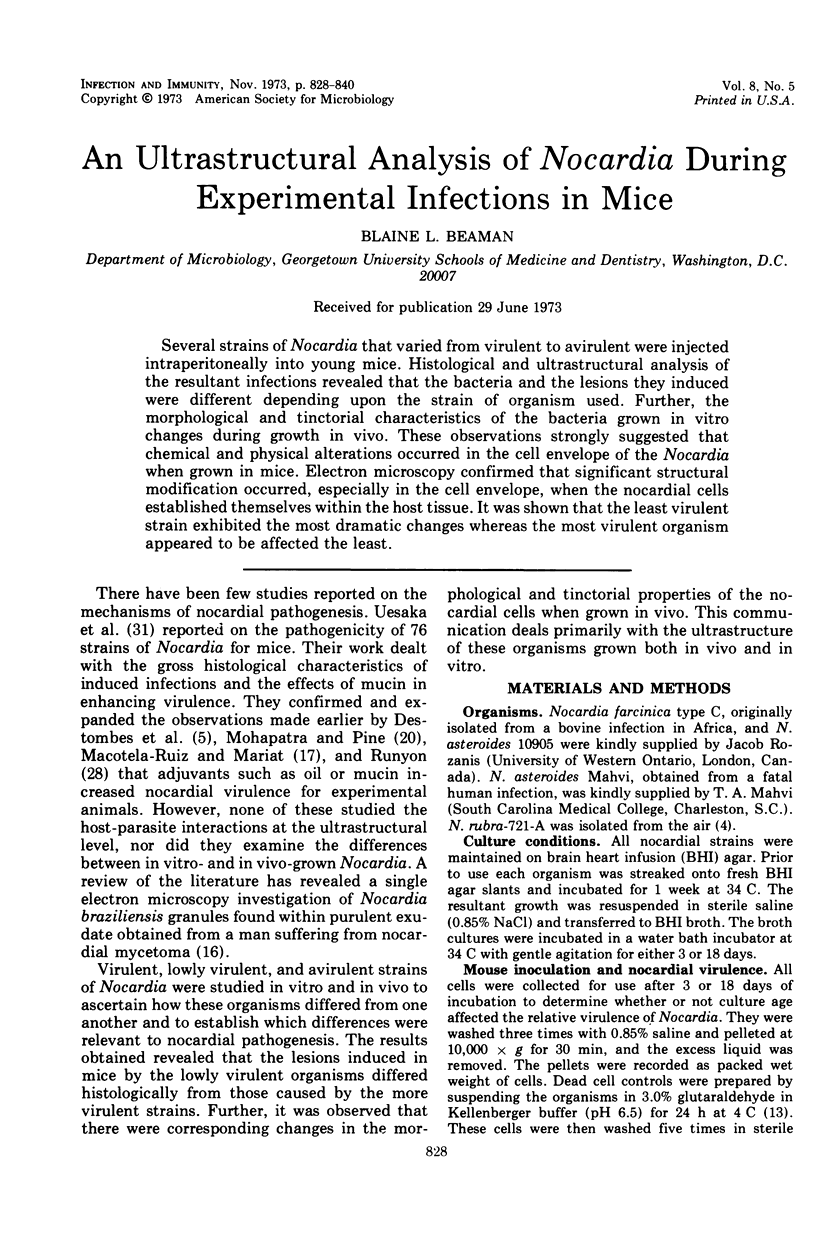
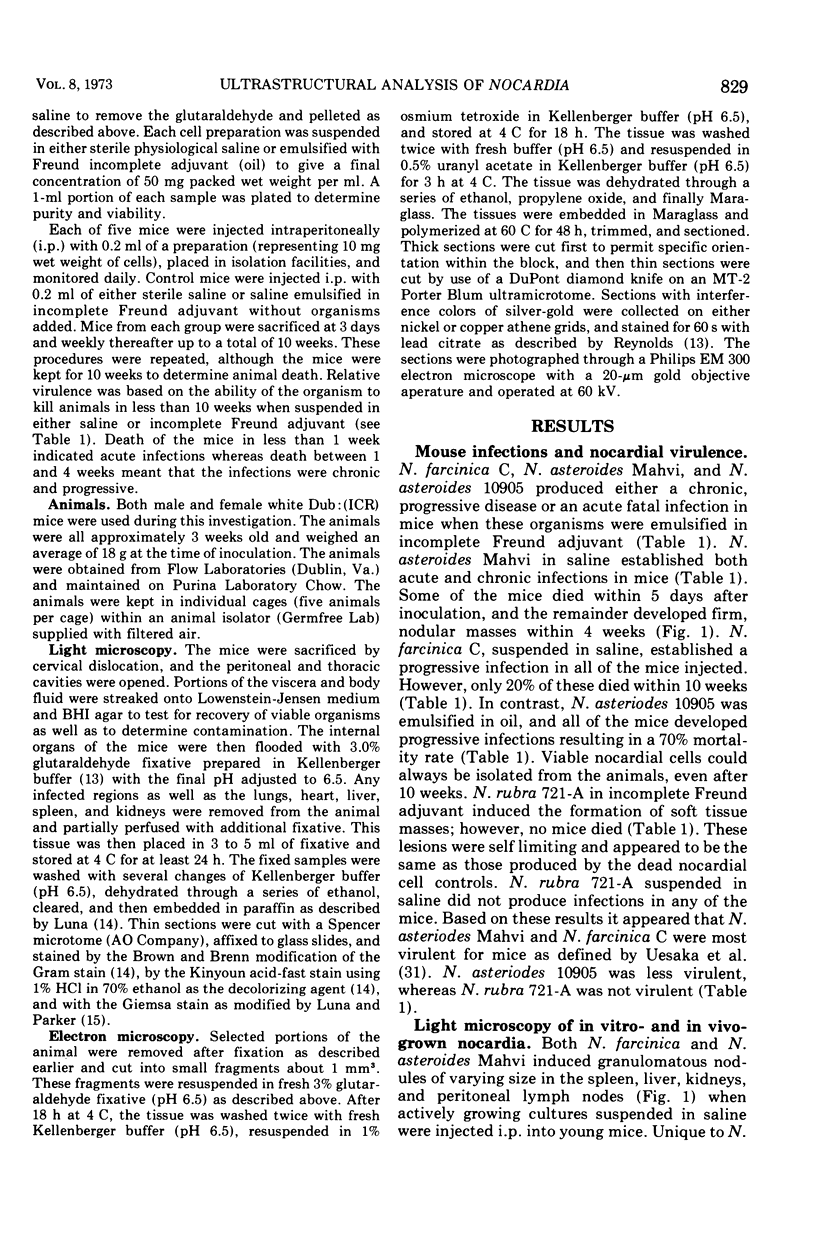
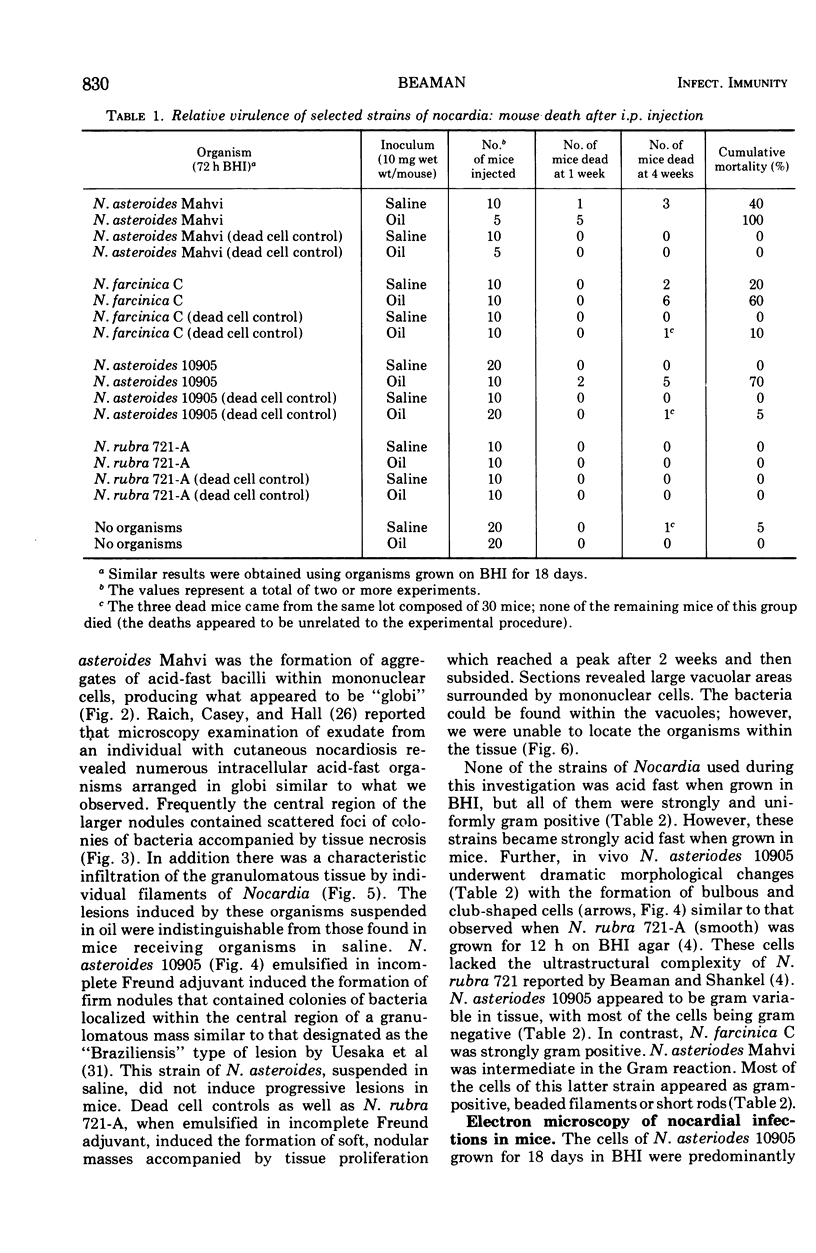
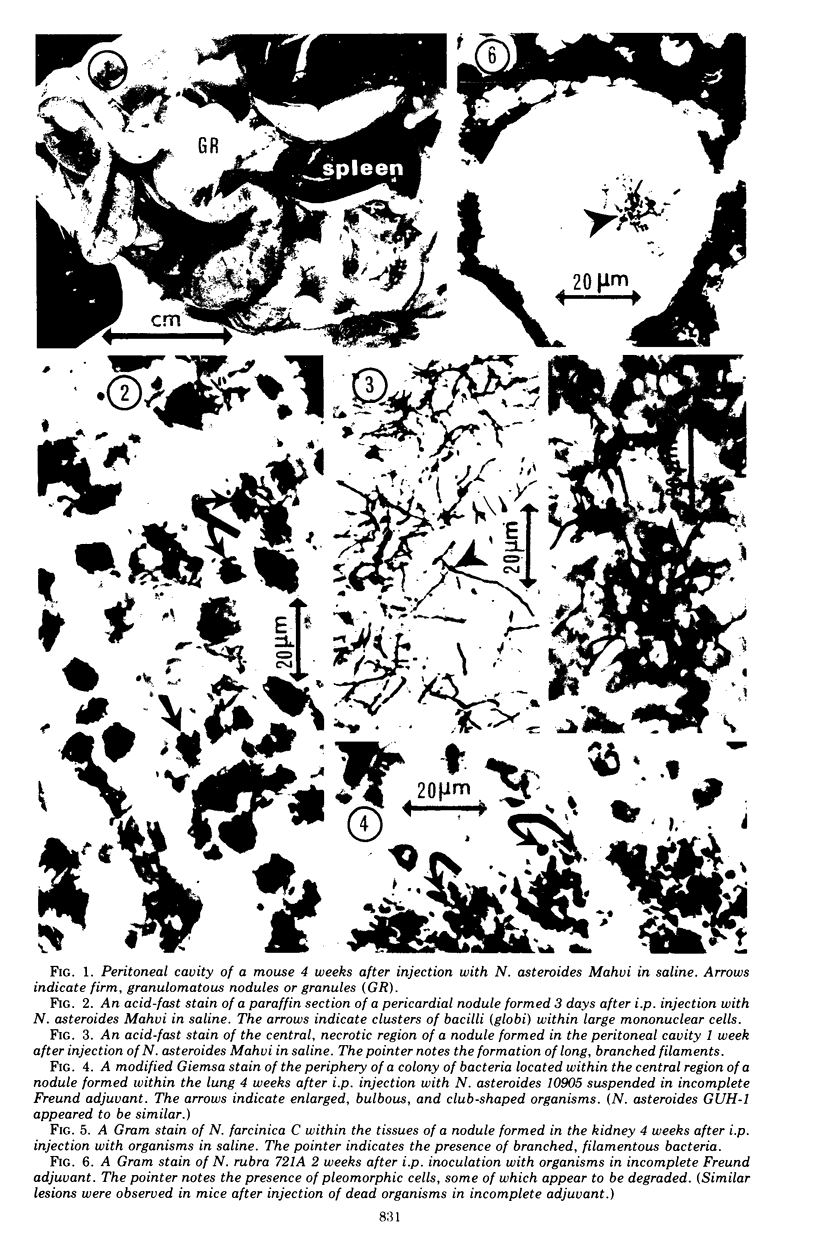
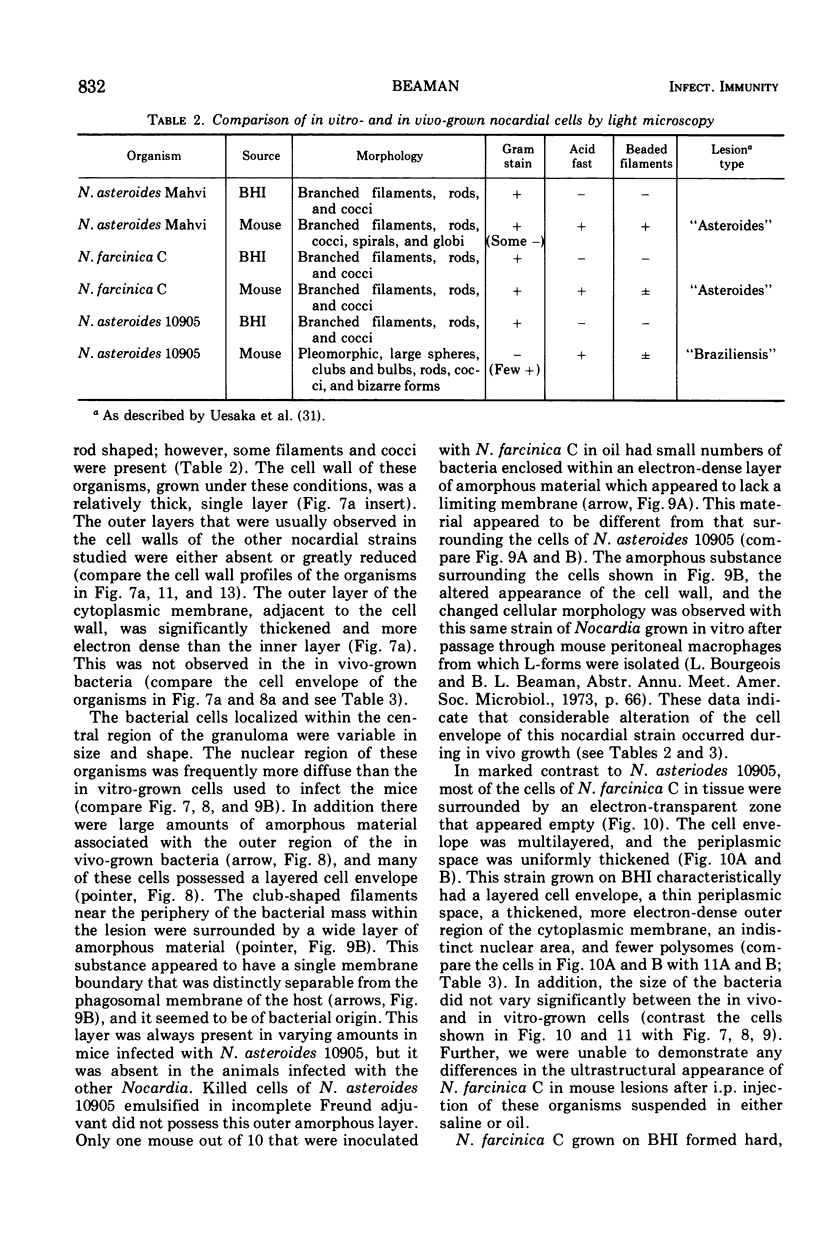
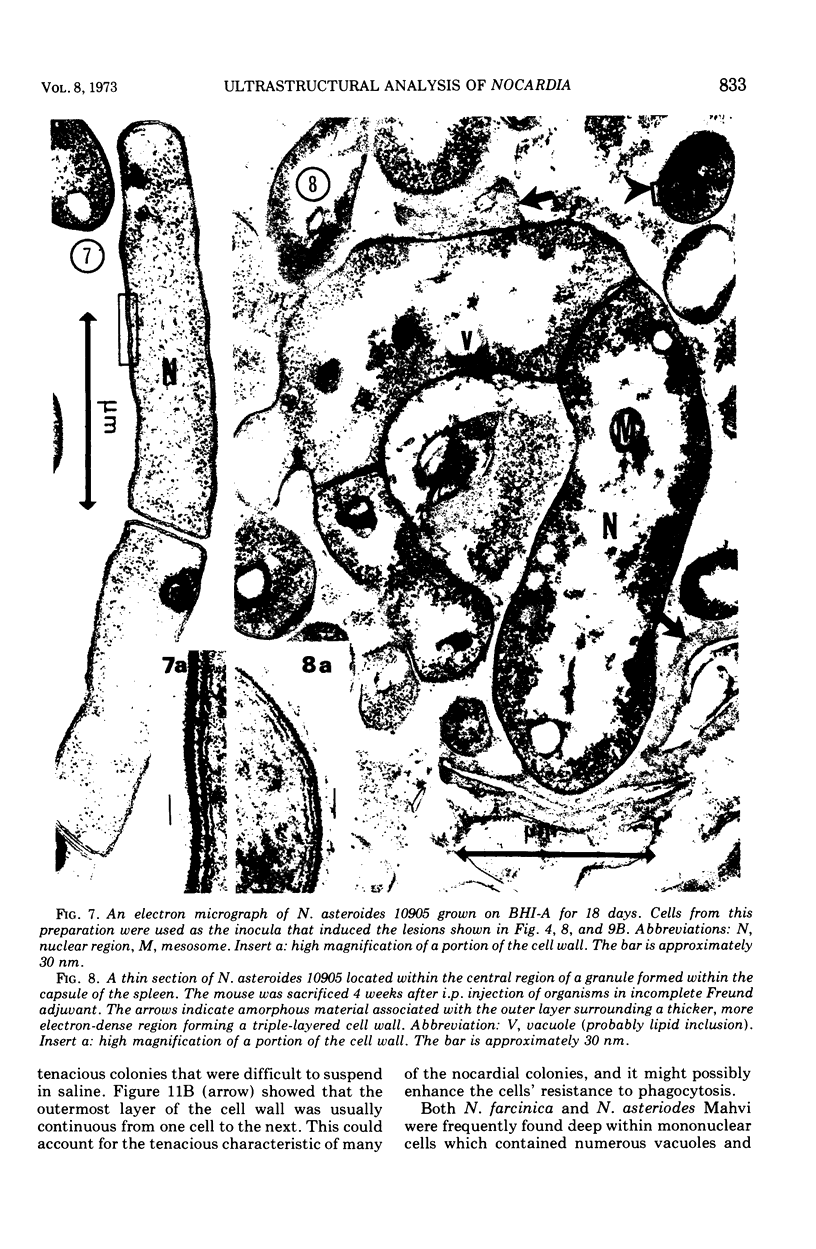
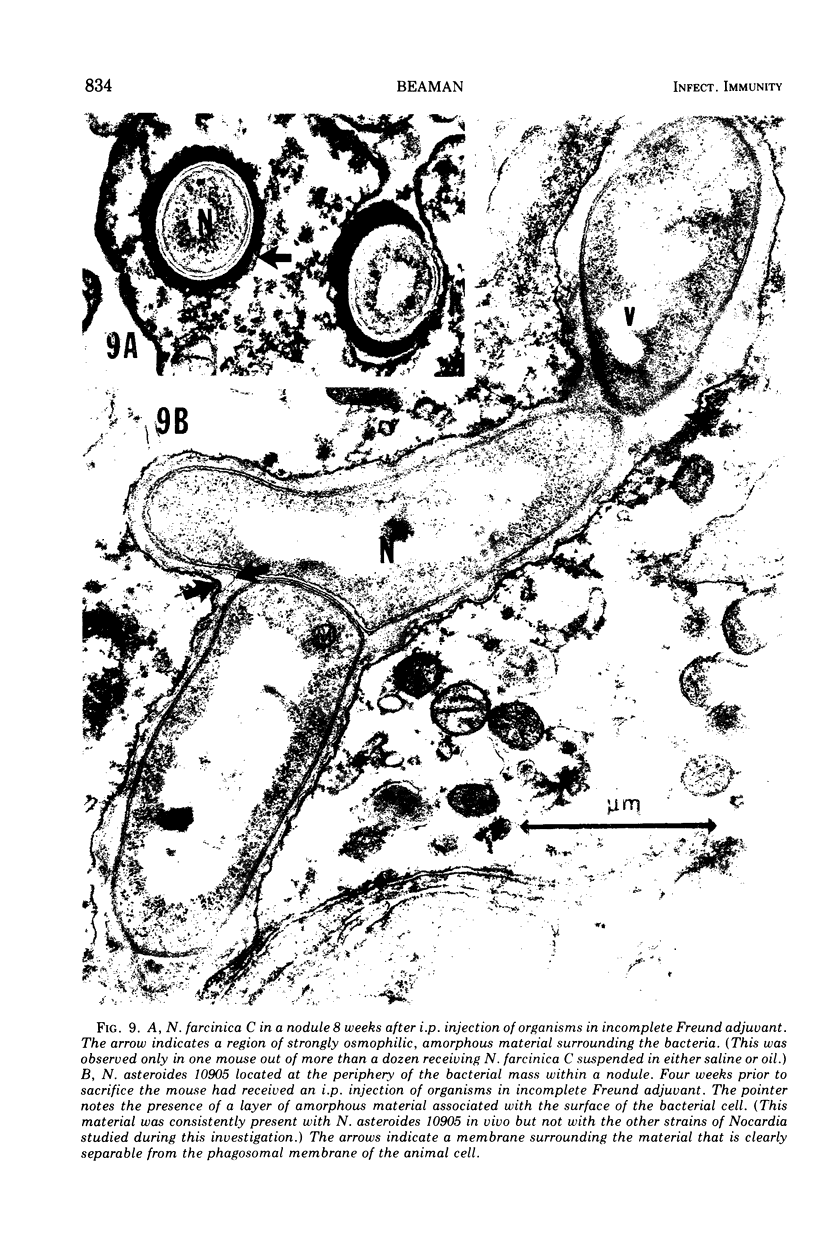
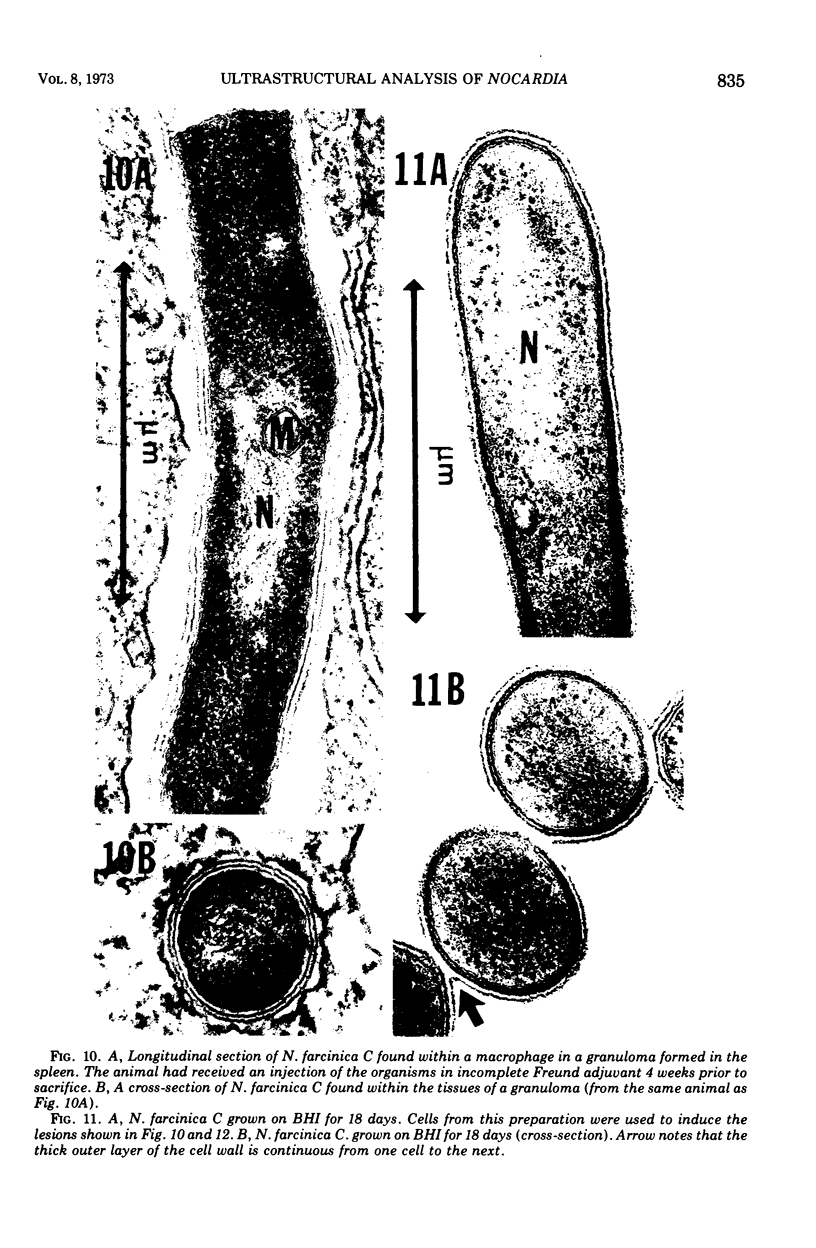
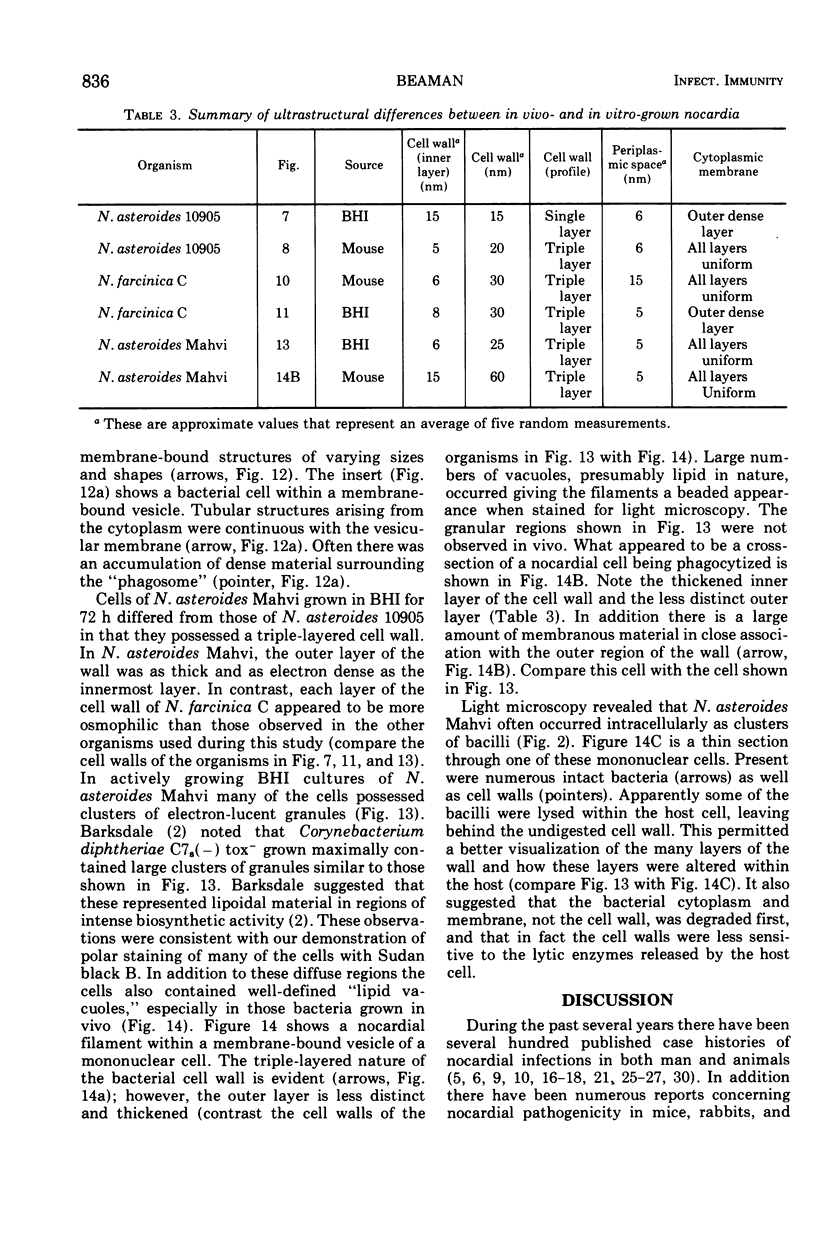
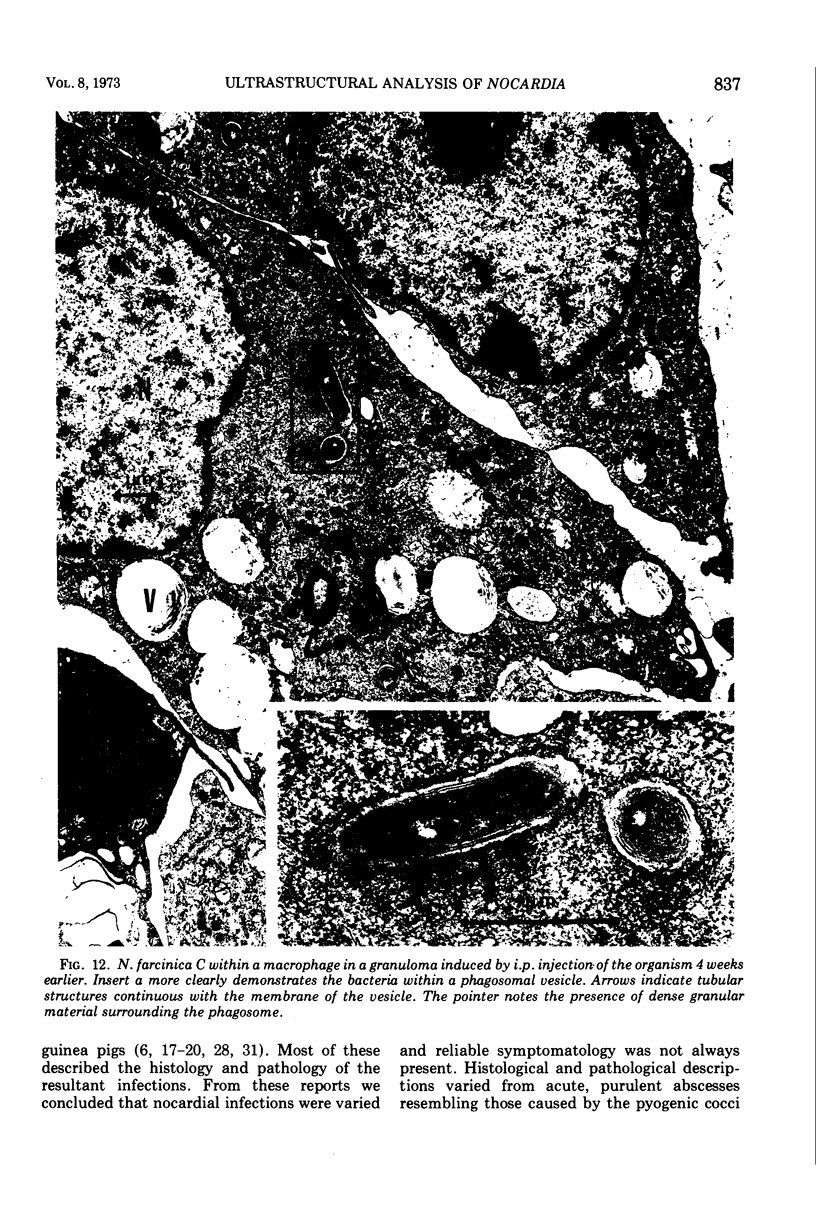
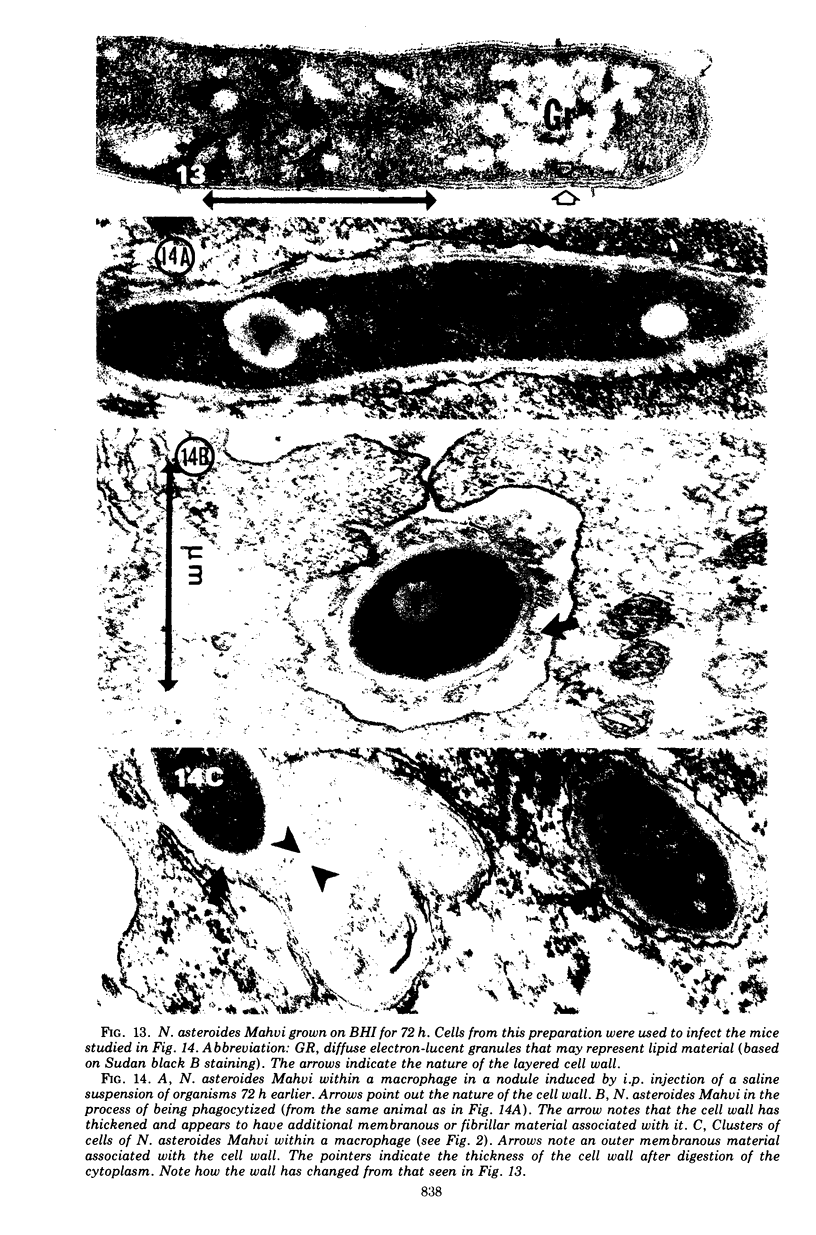
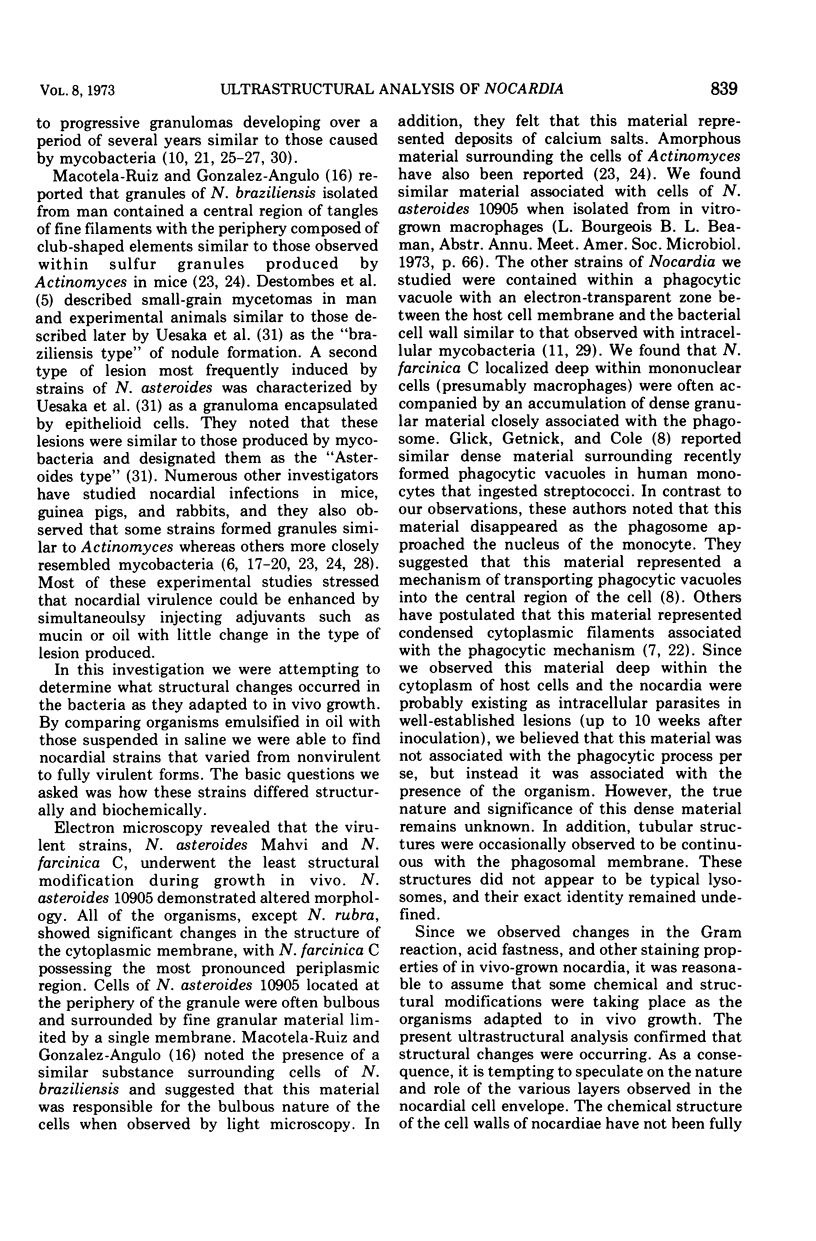
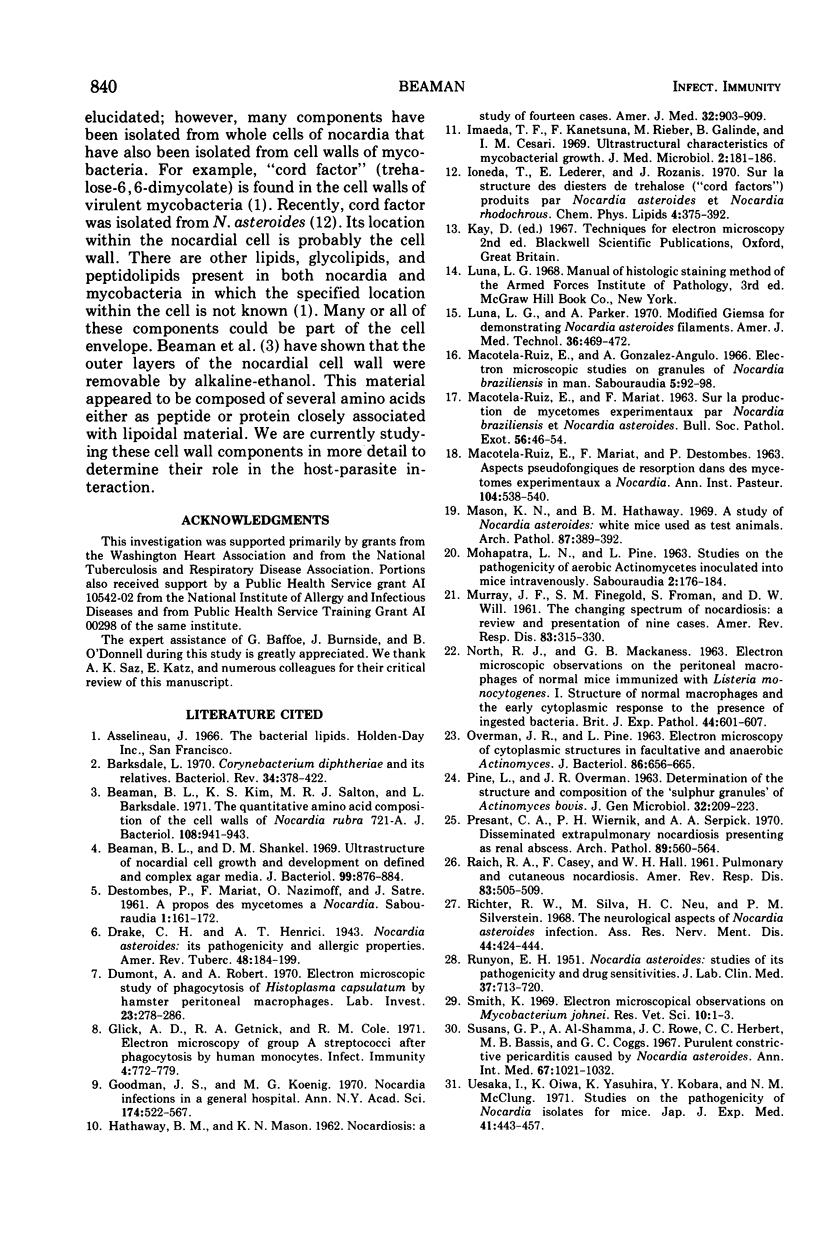
Images in this article
Selected References
These references are in PubMed. This may not be the complete list of references from this article.
- Barksdale L. Corynebacterium diphtheriae and its relatives. Bacteriol Rev. 1970 Dec;34(4):378–422. doi: 10.1128/br.34.4.378-422.1970. [DOI] [PMC free article] [PubMed] [Google Scholar]
- Beaman B. L., Kim K. S., Salton M. R., Barksdale L. Amino acids of the cell wall of Nocardia rubra. J Bacteriol. 1971 Nov;108(2):941–943. doi: 10.1128/jb.108.2.941-943.1971. [DOI] [PMC free article] [PubMed] [Google Scholar]
- Beaman B. L., Shankel D. M. Ultrastructure of Nocardia cell growth and development on defined and complex agar media. J Bacteriol. 1969 Sep;99(3):876–884. doi: 10.1128/jb.99.3.876-884.1969. [DOI] [PMC free article] [PubMed] [Google Scholar]
- DESTOMBES P., MARIAT F., NAZIMOFF O., SATRE J. [Apropos of mycetomas from Nocardia]. Sabouraudia. 1961 Oct;1:161–172. [PubMed] [Google Scholar]
- Dumont A., Robert A. Electron microscopic study of phagocytosis of Histoplasma capsulatum by hamster peritoneal macrophages. Lab Invest. 1970 Sep;23(3):278–286. [PubMed] [Google Scholar]
- Glick A. D., Getnick R. A., Cole R. M. Electron microscopy of group A streptococci after phagocytosis by human monocytes. Infect Immun. 1971 Dec;4(6):772–779. doi: 10.1128/iai.4.6.772-779.1971. [DOI] [PMC free article] [PubMed] [Google Scholar]
- Goodman J. S., Koenig M. G. Nocardia infections in a general hospital. Ann N Y Acad Sci. 1970 Oct 30;174(2):552–567. doi: 10.1111/j.1749-6632.1970.tb45581.x. [DOI] [PubMed] [Google Scholar]
- HATHAWAY B. M., MASON K. N. Nocardiosis. Study of fourteen cases. Am J Med. 1962 Jun;32:903–909. doi: 10.1016/0002-9343(62)90036-0. [DOI] [PubMed] [Google Scholar]
- Imaeda T., Kanetsuna F., Rieber M., Galindo B., Cesari I. M. Ultrastructural characteristics of mycobacterial growth. J Med Microbiol. 1969 Aug;2(3):181–186. doi: 10.1099/00222615-2-3-181. [DOI] [PubMed] [Google Scholar]
- Luna L. G., Parker A. Modified giemsa for demonstrating Nocardia asteroides filaments. Am J Med Technol. 1970 Oct;36(10):469–472. [PubMed] [Google Scholar]
- MURRAY J. F., FINEGOLD S. M., FROMAN S., WILL D. W. The changing spectrum of nocardiosis. A review and presentation of nine cases. Am Rev Respir Dis. 1961 Mar;83:315–330. doi: 10.1164/arrd.1961.83.3.315. [DOI] [PubMed] [Google Scholar]
- Macotela-Ruíz E., González-Angulo A. Electron microscopic studies on granules of Nocardia brasiliensis in man. Sabouraudia. 1966 Oct;5(2):92–98. [PubMed] [Google Scholar]
- Mason K. N., Hathaway B. M. A study of Nocardia asteroides. White mice used as test animals. Arch Pathol. 1969 Apr;87(4):389–392. [PubMed] [Google Scholar]
- NORTH R. J., MACKANESS G. B. ELECTRON MICROSCOPICAL OBSERVATIONS ON THE PERITONEAL MACROPHAGES OF NORMAL MICE AND MICE IMMUNISED WITH LISTERIA MONOCYTOGENES. I. STRUCTURE OF NORMAL MACROPHAGES AND THE EARLY CYTOPLASMIC RESPONSE TO THE PRESENCE OF INGESTED BACTERIA. Br J Exp Pathol. 1963 Dec;44:601–607. [PMC free article] [PubMed] [Google Scholar]
- OVERMAN J. R., PINE L. ELECTRON MICROSCOPY OF CYTOPLASMIC STRUCTURES IN FACULTATIVE AND ANAEROBIC ACTINOMYCES. J Bacteriol. 1963 Oct;86:656–665. doi: 10.1128/jb.86.4.656-665.1963. [DOI] [PMC free article] [PubMed] [Google Scholar]
- PINE L., OVERMAN J. R. DETERMINATION OF THE STRUCTURE AND COMPOSITION OF THE 'SULPHUR GRANULES' OF ACTINOMYCES BOVIS. J Gen Microbiol. 1963 Aug;32:209–223. doi: 10.1099/00221287-32-2-209. [DOI] [PubMed] [Google Scholar]
- Presant C. A., Wiernik P. H., Serpick A. A. Disseminated extrapulmonary nocardiosis presenting as a renal abscess. Arch Pathol. 1970 Jun;89(6):560–564. [PubMed] [Google Scholar]
- RAICH R. A., CASEY F., HALL W. H. Pulmonary and cutaneous nocardiosis. The significance of the laboratory isolation of Nocardia. Am Rev Respir Dis. 1961 Apr;83:505–509. doi: 10.1164/arrd.1961.83.4.505. [DOI] [PubMed] [Google Scholar]
- RUNYON E. H. Nocardia asteroides; studies of its pathogenicity and drug sensitivities. J Lab Clin Med. 1951 May;37(5):713–720. [PubMed] [Google Scholar]
- Richter R. W., Silva M., Neu H. C., Silverstein P. M. The neurological aspects of Nocardia asteroides infection. Res Publ Assoc Res Nerv Ment Dis. 1968;44:424–444. [PubMed] [Google Scholar]
- Smith K. Electron microscopical observations on Mycobacterium johnei. Res Vet Sci. 1969 Jan;10(1):1–3. [PubMed] [Google Scholar]
- Susens G. P., al-Shamma A., Rowe J. C., Herbert C. C., Bassis M. L., Coggs G. C. Purulent constrictive pericarditis caused by Nocardia asteroides. Ann Intern Med. 1967 Nov;67(5):1021–1032. doi: 10.7326/0003-4819-67-5-1021. [DOI] [PubMed] [Google Scholar]
- Uesaka I., Oiwa K., Yasuhira K., Kobara Y., McClung N. M. Studies on the pathogenicity of Nocardia isolates for mice. Jpn J Exp Med. 1971 Oct;41(5):443–457. [PubMed] [Google Scholar]



